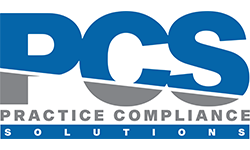- Approved Drug List for Pennsylvania Optometrists
- Federal Regulatory Issues
- Legislative Affairs Committee Reports
- Obtaining a DEA Number
- PA Sales and Use/Tax Sales Tax Exemption Certificate
- Pennsylvania Optometric Practice Act
- State Board of Optometry Rules and Regulations
- Resource Guide for the New Optometrist
Licensure
To practice in Pennsylvania, optometrists must hold a Doctor of Optometry Degree and be licensed by the Pennsylvania Board of Optometry.
Obtaining a license
To practice in Pennsylvania, optometrists must hold a Doctor of Optometry Degree and be licensed by the Pennsylvania Board of Optometry. Applicants who graduated in or after 2002 and have successfully passed all three sections of the National Board of Examiners in Optometry and the Pennsylvania State Board of Optometry Laws and Regulations Examination are eligible for licensure in Pennsylvania. Applicants who graduated before 2002 should contact the State Board for more information. Applications are available at the State Board of Optometry website.
Maintaining a license
- Optometrists must also earn a minimum of 30 hours of continuing education each two-year cycle for license renewal.
- For optometrists certified at the therapeutics level, at least 6 of the 30 hours must be taken in courses related to pharmaceuticals.
- For optometrists certified to treat glaucoma, at least 4 hours of the 30 hours must be taken in courses related to the treatment of glaucoma. These 4 glaucoma hours may also be used toward the 6 hour requirement in general pharmaceuticals, so long as a total of 30 hours is completed biennially.
- Fifty percent, or 15 hours, of your credits may be mail-in/Internet/correspondence courses.
- New licensees are exempt from the requirements of continuing education for the biennial period during which the new licensee has successfully completed the optometric examination for licensure if the applicant takes such examination within two years from his/her graduation from an accredited college of school of optometry. To find out exactly when you should begin to track your CE hours, contact the Pennsylvania State Board of Optometry.
- A current CPR certification is recommended but not required.
Supplemental licenses
Branch Office License
If you intend to practice optometry as a sole proprietor in a partnership or corporate setting at more than one location, you must apply for and obtain, in addition to your primary license, a branch license for each location other than the primary from the Pennsylvania State Board of Optometry.
Fictitious Name Permit
If you intend to use a fictitious name in connection with your practice, you must first apply for and obtain a fictitious name permit from the Pennsylvania State Board of Optometry.
The Pennsylvania Optometric Association has no role in licensure; therefore, all questions regarding licensure must be directed to the Pennsylvania State Board of Optometry. For information, visit the Pennsylvania State Board of Optometry’s website or call (717) 783-7155.










